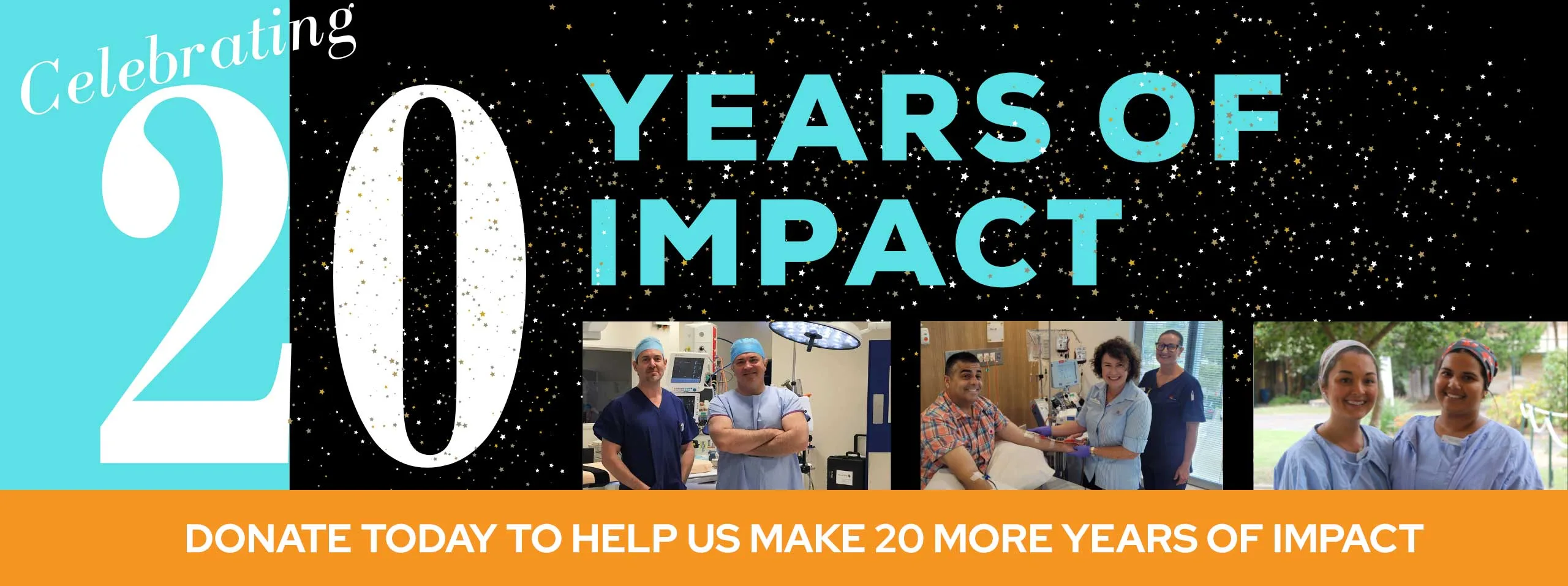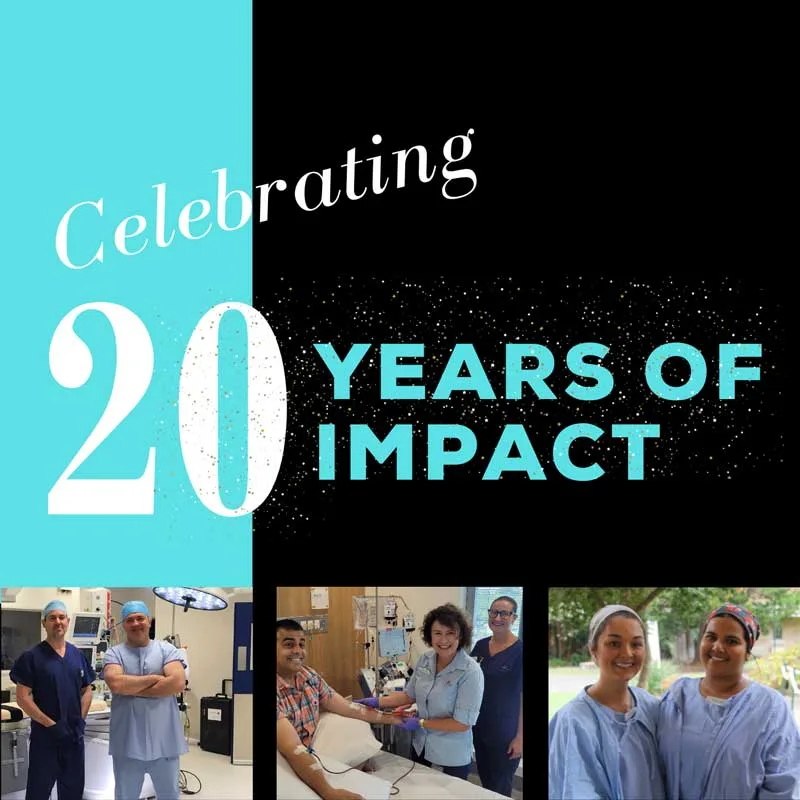Our Impact - Kidney
OUR IMPACT
Kidney
Renal Research
Living with Chronic Kidney Disease (CKD) is challenging and patients who require a kidney transplant, face the daily reality of taking immunosuppressive drugs to avoid organ rejection. Unfortunately, whilst necessary to counter the rejection of the kidney, some can cause kidney toxicity. Damage biomarkers can detect drug toxicity and therefore help with the early detection of subclinical nephrotoxic injury. We recently funded a study to evaluate the role of more precise and reliable markers of kidney function and other damage markers in the diagnosis of kidney injury. The TransTox Study, led by Amy Yoke Mooi and supported by Dr Camila Eleuterio Rodrigues and Prof Zoltan Endre has already led to a new kidney biomarker being implemented in the hope of providing kidney transplant patients with better graft survival due to better drug management.


Kidney Biobank
Prince of Wales Hospital Kidney Biobank is the region’s first unique kidney biobank for acute (AKI) and chronic kidney disease (CKD) and idiopathic nephrotic syndrome (INS). This biorepository of patient tissue, samples and linked clinical data from patients with Kidney Disease is a strategic resource for fundamental and translational research and opened new opportunities for all researchers to accelerate new advances to benefit kidney patients, their treatment and care.
Bladder scanner for Nephrology Department
The new bladder scanner provides insights into urinary retention in the immediate post operative period which helps staff to determine conditions such as anuria (the kidney not making urine) versus urinary retention (urine remaining in the bladder). Following the removal of the urinary catheter it also allows the nursing and medical staff to assess bladder function to ensure the patient is completely emptying their bladder following removal of the catheter to avoid urinary tract infection and urine leak. The cutting-edge bladder scanner is crucial in the immediate post operative period as it provides vital information to medical staff and allows them to make faster clinical decisions.




